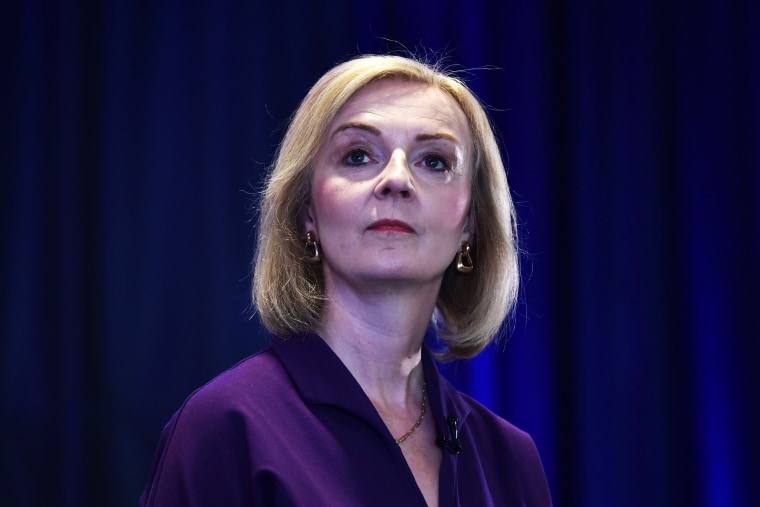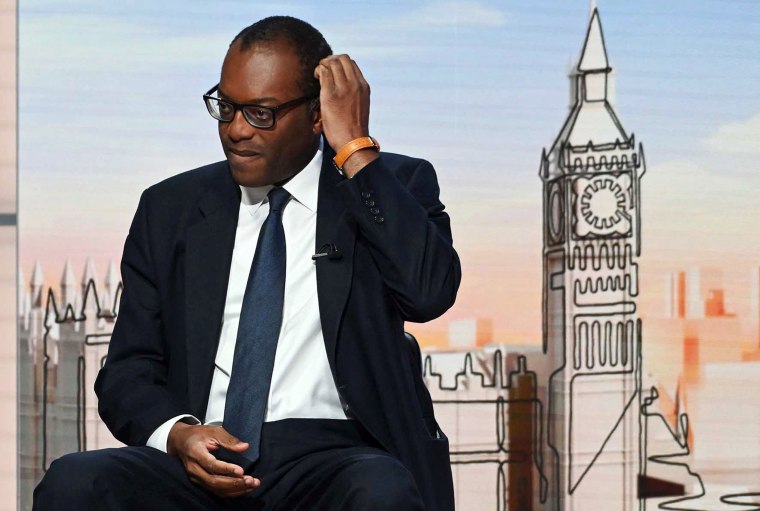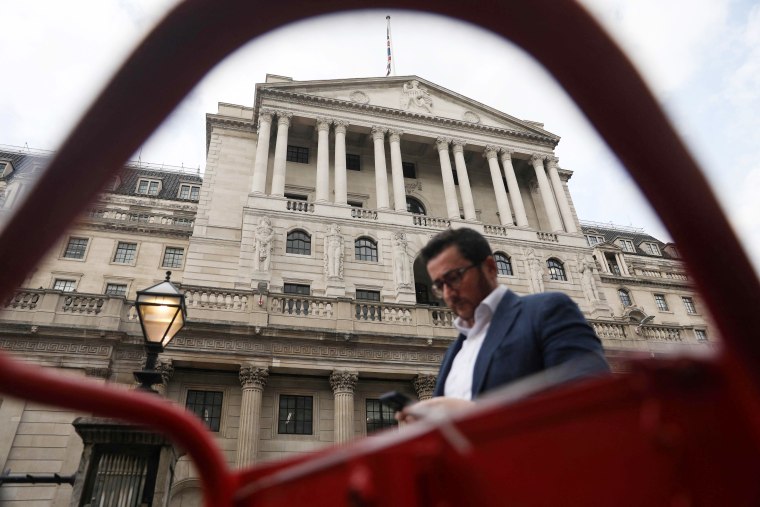LONDON — If anyone thought Britain was due a period of calm after Boris Johnson’s tumultuous premiership, no one told his successor.
The country was already facing an ugly menu of challenges. But the proposed solution by new Prime Minister Liz Truss has quickly sent the economy spiraling into chaos, threatening consequences both immediate and long-lasting for many Britons.
Her Conservative government's 45 billion pound ($48 billion) plan to slash taxes — particularly for the country’s highest earners — has sent shock waves through financial markets, causing the pound to plummet and leaving Truss' own political future in sudden doubt just three weeks after taking office.

After days of turmoil, the U.K. drew a rare stinging rebuke from the International Monetary Fund, which urged the government to "re-evaluate" a plan that may fuel already-soaring inflation and increase economic inequality.
The Bank of England, the U.K.'s central bank, made its own emergency intervention Wednesday, announcing it would buy up as much government debt as needed in an effort to restore stability.
Keir Starmer, the emboldened leader of the opposition Labour Party, joined others in urging the government to address the crisis by recalling Parliament, which is on recess.
Few Brits actually voted for Truss, who won the race to replace the scandal-hit Johnson by appealing to around 200,000 members of the ruling Conservative Party. She sold herself as a free-market-loving heir to the divisive former leader Margaret Thatcher, but polls in recent days suggest the public at large has not taken to her policy proposals, further weakening her position.
It all stems from her gamble to spur economic growth and combat what many experts say could be a long recession, spearheaded by a grim winter in which some families could struggle to pay for energy and food.
Beyond the halls of Westminster and the frenzied trading floors of the City of London, the last week has left many Brits feeling a deepened sense of despair about the country's future.
“There are many millions of people across the U.K. who will find this winter incredibly difficult financially,” said Rebecca McDonald, chief economist at the Joseph Rowntree Foundation, a charity focused on tackling poverty. “These people had to watch the chancellor cut taxes for those who are better off — it was incredibly difficult to hear.”
The market reaction to Truss' plan sent government borrowing costs soaring, likely to be met with higher inflation and interest rates that will in turn mean more expensive credit cards and mortgages — even threatening a subprime housing crisis if people can’t make repayments. The nose-diving pound will also make everyday products in Britain more expensive as importers face spiraling costs.
The “mini budget” wasn’t accompanied by spending cuts, or a traditional independent cost estimate that might have eased market fears, if not public criticism of its leader's priorities.
The government’s argument is simple, in theory. It wants to supercharge Britain’s sluggish economy by any means necessary — even if that means short-term shocks.
It was left up to Treasury chief Kwasi Kwarteng to drop the biggest bombshell in Parliament on Friday: a tax cut for people who earn more than 150,000 pounds ($160,000) a year. This would "make Britain more competitive," as well as "reward enterprise and work" and "incentivize growth," he told lawmakers. "It will benefit the whole economy and whole country."
In its defense, the government points to measures at the other end of the scale, such as cutting the lowest tax bracket and an earlier pledge to freeze household energy bills until 2024, part of a 150 billion pound ($162 billion) public support package that ranks among the biggest in history — something McDonald at the Joseph Rowntree Foundation called "very important and very significant."
NBC News has reached out to the British Treasury for comment.

Much of Europe is mired in an energy crisis thanks in part to Russia's invasion of Ukraine, but critics say Britain is uniquely vulnerable because Brexit has caused its economy to underperform.
Truss' supporters have dwindled to a relatively small coterie of hardcore economic right-wingers, with many others to the right of the political center deeply critical.
“As a Conservative I find it quite worrisome,” Dominic Grieve, who was a member of Parliament with the party until 2019 and served as attorney general, told NBC News. “It seems to me a very high-risk strategy and not one you would associate with a Conservative government.”
Current Conservative lawmaker Simon Hoare labeled the government’s actions “inept madness” in a tweet Wednesday.
Others have resorted to anonymous briefings to an array of British newspapers to say Truss' days may be numbered, unheard of so soon into a prime minister's tenure.
Many Conservatives now openly worry about the political optics of a plan centered on doling out cash to the super-rich during a cost-of-living crisis. Polls suggest the opposition left-of-center Labour Party has soared to leads as high as 17 percentage points, although an election isn't due to be held until early 2025 at the latest.
The Conservative Party has always branded itself as the sober, fiscally responsible force of the British center-right. Truss has remained silent through the crisis, but her supporters have departed from that self-image to dismiss the backlash as the product of a financial system too wedded to a failed orthodoxy of the past.
“But there’s a widespread perception,” according to Tim Bale, a politics professor at Queen Mary University of London, “that, this time, the markets aren’t being irrational.”

